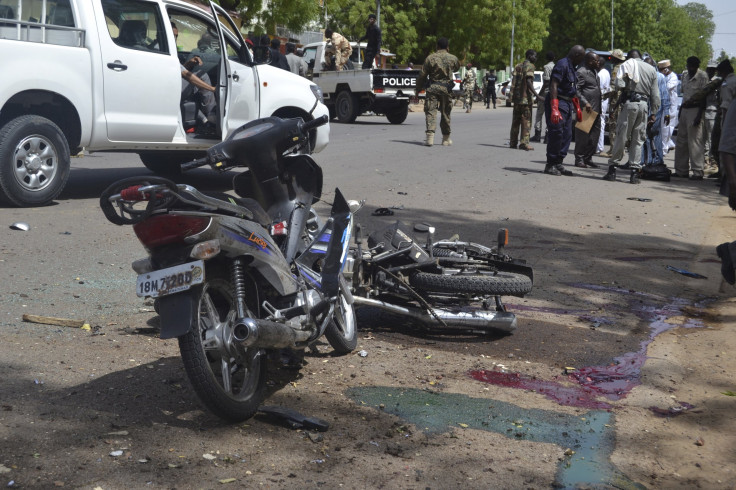Suicide Bombing In Chad: Boko Haram Suspected, At Least 17 People Killed

At least 17 people were killed in a suicide bombing Saturday at a crowded market in N'Djamena, the capital of Chad, just days after a bombing by Boko Haram in the city that killed 38 people. The bombing, which injured dozens of others, comes amid a recent spate of attacks by the Islamic jihadist group from northern Nigeria in Chad, as Boko Haram has tried to increase its presence throughout West Africa. Several West African nations, including Chad, have made efforts to aid Nigeria in the fight against the Islamic State-associated terrorist group.
The N'Djamena bombing was carried out by a man disguised as a woman wearing a full-face veil who detonated the explosion as policemen tried to stop him, Al-Jazeera reported. Two officers were killed in the attack.
"The fight against Boko Haram is unlikely to be concluded with any rapidity," Ryan Cummings, chief Africa analyst with the Red24 consulting group, told AFP. "The fact remains that while Boko Haram continues to be defined as a Nigerian problem, evidence suggests that it has become a quandary of regional proportions requiring a regional solution."
Police Director General Taher Erda told AFP the bomber detonated the explosions at a security check point at the entrance of the market.
Suspected Boko Haram fighters killed 26 people in in two villages around Lake Chad last week along with nearly 40 who died in an attack on N'Djamena on June 15.
Boko Haram has killed at least 15,000 people since 2009 and left more than 1.5 million homeless, AFP reported.
In response to the first bombings in N'Djamena in June, Chad announced a ban on the full face veil to try to prevent suicide attacks in the nation although the ban has not been strictly enforced, Al-Jazeera said.
The jihadist group publicly aligned itself with the Islamic State of Iraq and Syria (the Islamic State group or ISIS) in March.
While Boko Haram has not claimed responsibility for the attack Saturday, a police source told AFP there was "no doubt it was Boko Haram."
© Copyright IBTimes 2024. All rights reserved.






















